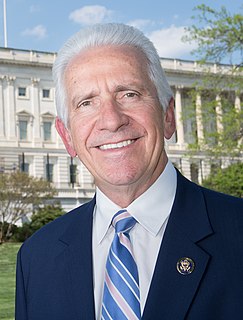A Quote by Paul Samuelson
U.S. capital formation, which has been pretty high in the '90s and very high in the late 1990s, is what is being financed by the savings of the rest of the world, generally poorer than ourselves, because our deficit on current account, chronic deficit, is their surplus, and they have been willingly bringing that to the American market.
Related Quotes
Our practical choice is not between a tax-cut deficit and a budgetary surplus. It is between two kinds of deficits: a chronic deficit of inertia, as the unwanted result of inadequate revenues and a restricted economy; or a temporary deficit of transition, resulting from a tax cut designed to boost the economy, increase tax revenues, and achieve -- and I believe this can be done -- a budget surplus. The first type of deficit is a sign of waste and weakness; the second reflects an investment in the future.
Some people worry about our federal deficit, but I, I worry about our bravery deficit. Our economy, our society - we're just losing out because we're not raising our girls to be brave. The bravery deficit is why women are underrepresented in STEM, in C-suites, in boardrooms, in Congress, and pretty much everywhere you look.
It is my view that what is important is cutting government spending, however spending is financed. A so-called deficit is a disguised and hidden form of taxation. The real burden on the public is what government spends (and mandates others to spend). As I have said repeatedly, I would rather have government spend one trillion dollars with a deficit of a half a trillion than have government spend two trillion dollars with no deficit.
R&D generally has been a bipartisan thing, because in the IT space, in the medical space, the U.S., the benefits to ourselves and the world and our economy have been very, very clear. I'm hopeful we can make a very strong case there. Energy is actually harder; it takes more time to get a product, but if you do it's a very, very big market and the constraints of doing that in a clean way are more obvious all the time.


































